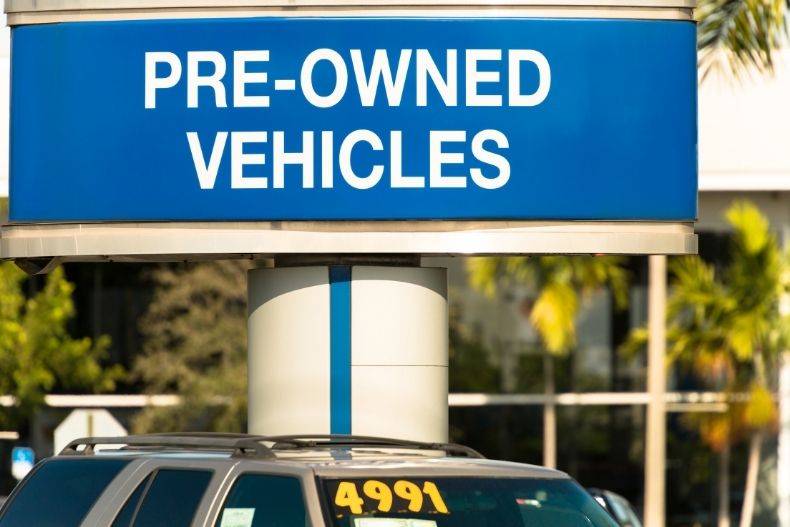When you decide it’s time to purchase a vehicle for your business, it makes sense to go for one that’s been pre-owned. A new car from the main dealership will look great and can be expected to run, trouble-free for the period of the warranty. However, the depreciation as soon as you leave the forecourt makes it a luxury purchase. According to recent estimates, new cars lose 30-40% of their value in the first year alone, depending on the mileage. Buying a quality used car for your business can make sound financial sense. In addition to ensuring that the car has all relevant documentation, here are some of the factors to take into consideration before making your decision.

1. Your budget/running costs
The first consideration is, of course, your budget. Running costs, over the lifetime of the vehicle, also need to be factored in.
Road tax: rates vary according to the age of the car, and the level of emissions. Older diesel vehicles, which seem like a bargain, may attract a higher rate of tax than newer, cleaner options.
If you’re a high annual mileage, the price of insurance will increase to reflect that. Diesel cars tend to be somewhat more expensive to insure than petrol cars.
If you choose a vehicle from a high-end manufacturer, which needs to be serviced at an approved dealership, expect increased maintenance costs.
2. Fuel type
Should you opt for petrol, diesel or a hybrid model?
While diesel engines have better fuel efficiency, so running costs will be lower, given the UK government’s intention to ban their sale by 2030 many people are now reluctant to purchase diesel vehicles. However, for now, diesel remains a much relied on fuel.
A few red flags are emerging in respect of diesel cars, depending on where the vehicles will be used. For example, Bristol has banned privately-owned diesel vehicles from parts of the city, and other cities may decide to follow suit. Commercial vehicles will still be allowed access, but with a charge.
If you have a business that promotes its green credentials then a hybrid may be a good investment. It will use less fuel and therefore produce less CO2 than an equivalent petrol or diesel model. A used hybrid will cost around the same as new petrol or diesel models.
3. Where to buy from?
Main dealer: while this is the most expensive option, you’ll know that the vehicle has been thoroughly checked and will likely come with a 6 or 12-month warranty. The dealer not only has his or her reputation to consider, they also don’t want to pay for labor costs involved in rectifying faults in the vehicle they’ve sold you.
Independent garages may have more choice, as they’re not tied to a particular brand. However, any warranty offered may a wider selection. If you’re going to use an independent dealer, choose one that’s been recommended by a satisfied customer, as the post-sales service is critical.
Buying from a private seller is usually cheapest, although most cars are ‘sold as seen’ – so you will have very little legal comeback if things go wrong. You may also have to arrange your insurance cover to legally test drive a car offered by a private seller.
4. Get an independent valuation
How to be sure that you’re paying the right price for a used car? CAP and Auto Trader are among the many online valuation providers, so check before you enter any detailed discussions.
5. Warranty
As mentioned above, authorized dealers are the most likely to provide a strong warranty over an extended period. Independent dealers may offer to sell you ‘third-party’ warranties at additional cost.
6. Who’s going to drive it?
Before you select the make and model of a used car, consider who’s going to be driving it and what for. For an estate agent, making numerous short trips within the city, ease of parking is the priority. For a rep travelling up and down the motorways for hours each day, comfort becomes the most important factor.
Also, if clients are likely to travel in the vehicle, the condition of the interior, including ac/ heating efficiency, becomes a high priority.
7. Branding
It may not seem like the most important consideration, but branding the car’s exterior is an effective and low-cost advertising medium. Consider how suitable your choice will be for this. It goes without saying that to create the right impression of your business the bodywork will have to be maintained in immaculate condition.